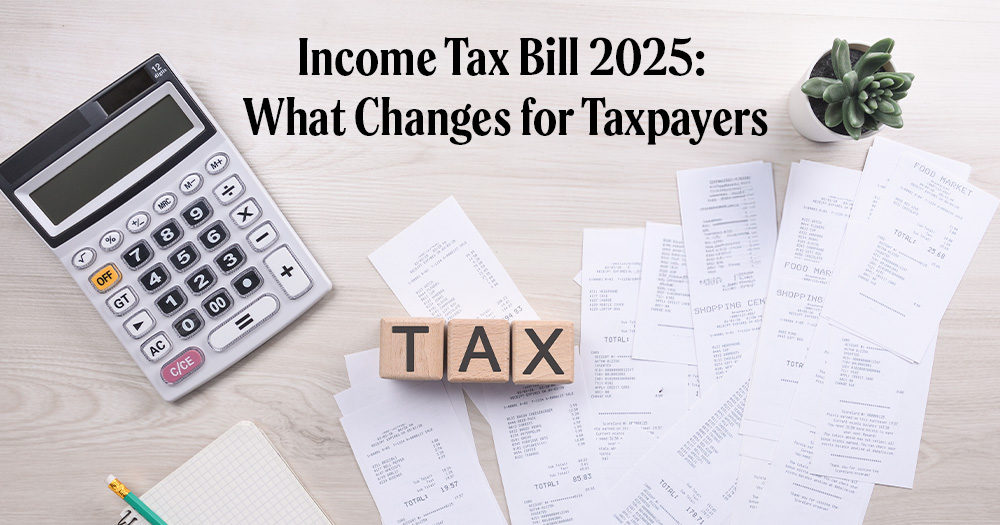
Income Tax Bill 2025: New Stringent Rules and the Beginning of the Digital Tax Era!
The Government of India has introduced the Income Tax Bill 2025, bringing major changes to the tax system. These include stringent measures against tax evasion, increased transparency in digital assets, and severe penalties for late filing. Let’s explore the key highlights of these new provisions:
Strict Action Against Tax Evasion
-
- Tax evasion exceeding ₹50 lakh may result in imprisonment.
- Misreporting of income can attract penalties of up to 200%.
- A special investigation team (SIT) will take action against undisclosed assets and fraudulent transactions.
- Enhanced scrutiny of high-value transactions to prevent illegal fund transfers.
Tax authorities will now have broader powers to track income discrepancies. The government aims to ensure compliance by using digital verification and cross-referencing financial data.
Heavy Penalties for Late Tax Filing
-
- A delay of up to 6 months can result in a penalty of up to ₹25,000.
- For companies, the penalty can go up to ₹5 lakh.
- Further delays may lead to criminal proceedings.
- Increased interest rates on overdue tax payments.
The government is tightening compliance to ensure taxpayers file on time, reducing the backlog of pending cases and improving tax collection efficiency.
New Cash Transaction Limits
-
- Cash transactions exceeding ₹2 lakh will attract a 100% penalty.
- Deposits above ₹10 lakh will require mandatory reporting.
- Large cash transactions will be under strict surveillance by the Income Tax Department.
- Real estate, jewelry, and luxury purchases made in cash will face additional scrutiny.
The goal is to curb black money circulation and ensure that all significant transactions are properly documented and taxed.

Stringent Regulations for Crypto Investors
-
- Hiding crypto holdings will lead to an additional 30% tax + penalties.
- Reporting of digital assets is now mandatory.
- Strict action will be taken against fraudulent transactions or anonymous crypto accounts.
- Exchanges and wallet providers must comply with new KYC and reporting guidelines.
Crypto traders and investors must maintain detailed records of their holdings. Non-compliance can lead to financial penalties and legal consequences.
AI-Based Tax Audit and Faceless Assessment
-
- Tax scrutiny will now be completely automated.
- AI and Machine Learningwill monitor tax evaders closely.
- Faceless assessment will eliminate corruption and bias.
- Predictive analytics will identify suspicious financial activities.
With AI-driven audits, the system can quickly flag discrepancies, reducing human intervention and ensuring a fair taxation process.
Special Courts for High-Profile Cases
-
- Fast-track courtswill be set up for tax fraud cases exceeding ₹5 crore.
- High-profile cases will be handled swiftly and fairly.
- Severe actionwill be taken against major tax offenders.
- Special task forces will be assigned to handle corporate tax fraud.
These courts aim to expedite legal proceedings against tax defaulters, reducing long-drawn litigation and ensuring quicker justice.
Conclusion
The Income Tax Bill 2025 is crucial not only for preventing tax evasion but also for establishing a transparent and effective tax system in the digital era. With this new law, tax compliance will be encouraged, leading to higher government revenue.








